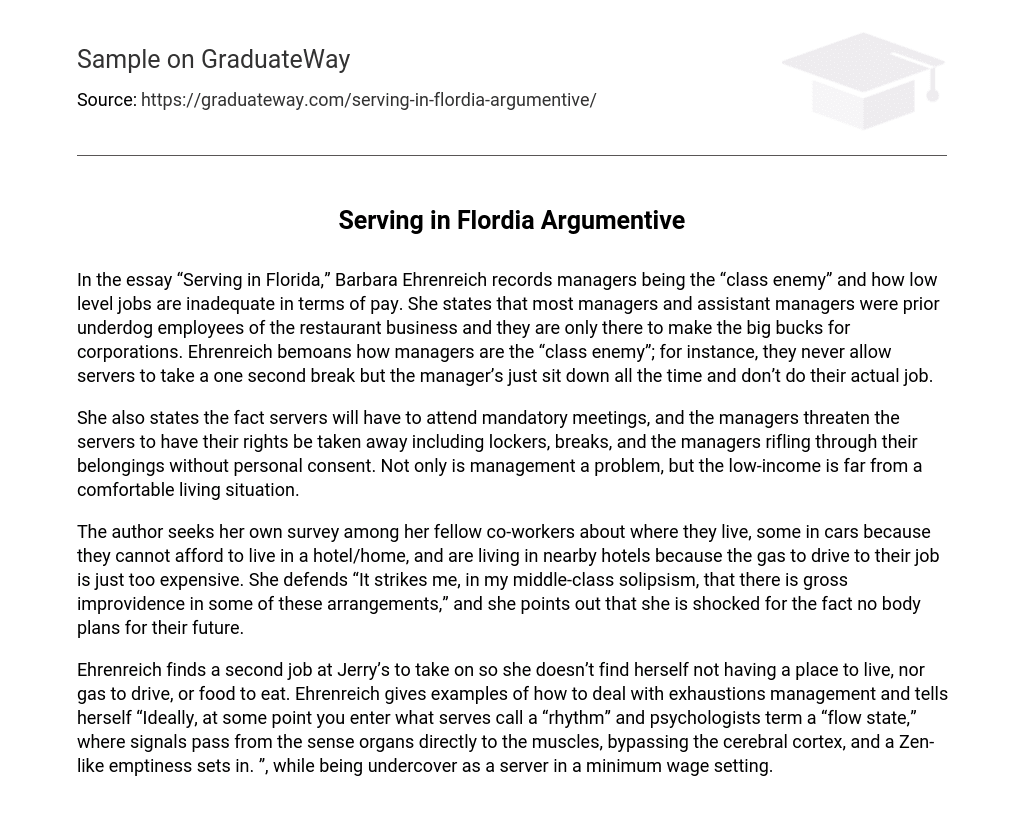Barbara Ehrenreich narrates in the essay “Serving in Florida” how managers are viewed as the “class enemy” and emphasizes the inadequacy of low-level jobs’ pay. She highlights how many managers and assistant managers were once underdog employees in the restaurant industry, and asserts that their main purpose is to generate high profits for corporations. Ehrenreich expresses her dissatisfaction with managers acting as the “class enemy,” exemplifying how they unjustly prevent servers from taking even a brief break while they themselves frequently engage in leisurely activities instead of fulfilling their actual responsibilities.
The author mentions that servers will be required to attend mandatory meetings. Additionally, the managers use threats to intimidate servers, such as taking away their rights to lockers, breaks, and even searching through their personal belongings without their consent. It is evident that both management issues and the low-income situation create an uncomfortable living environment.
The author conducts a survey among coworkers to find out where they live. Some are living in cars due to financial constraints, while others stay in nearby hotels because driving to work is too costly. The author argues that these living arrangements are imprudent and expresses shock over the lack of future planning.
While working undercover as a server in a minimum wage setting, Ehrenreich takes on a second job at Jerry’s to ensure she has a place to live, enough gas to drive, and food to eat. She provides examples of how to manage exhaustion and describes striving for a “rhythm” or “flow state” where signals bypass the cerebral cortex and a sense of Zen-like emptiness prevails.





